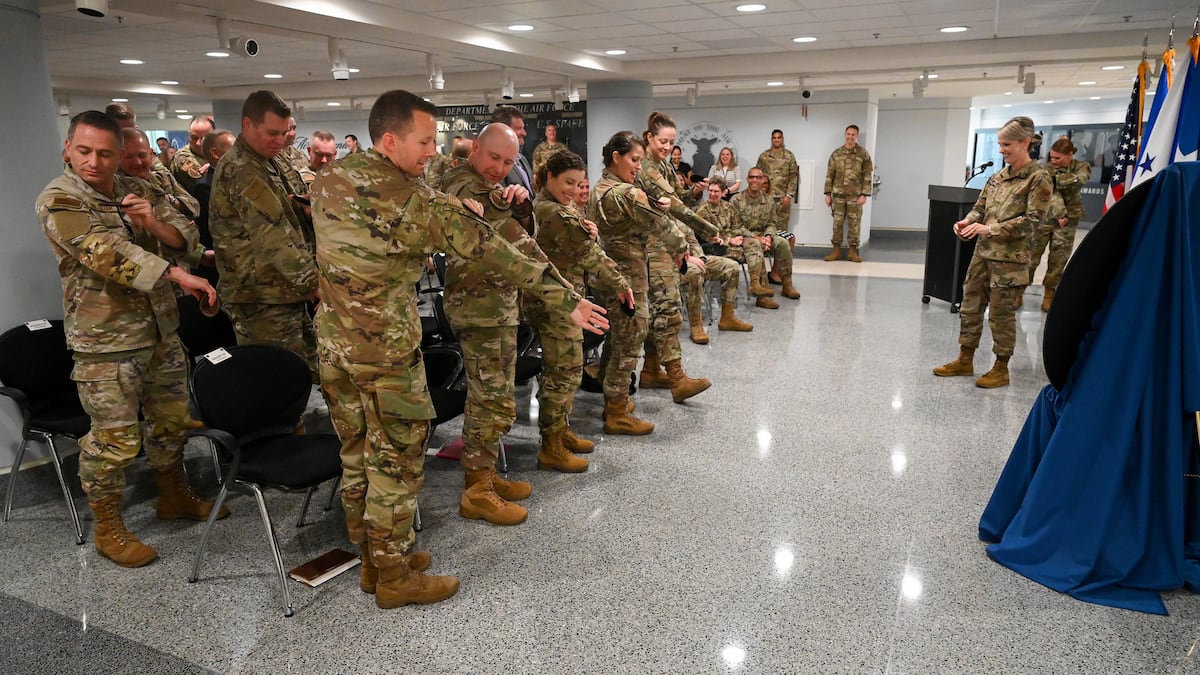The Air Force created a new office dedicated to communications and cyber systems, marking what was hailed in a service release “as one of the most significant reorganizations of the Air Staff in over 30 years.”
The new AF/A6 Deputy Chief of Staff Office breaks up responsibilities previously held under the Air Force headquarters A2 office to add a new and combined focus on cyber and communications.
The change is intended to align with other Pentagon initiatives to streamline command and control capabilities and inform future investments and force design decisions.
“We created the A6 to ensure communications and cyber systems are available, secure and aligned with warfighter priorities. This office will help us focus resources and oversight where it matters most — supporting the mission in contested environments,” Air Force Chief of Staff Gen. David Allvin said in the release.
Maj. Gen. Michele Edmondson has been appointed to lead the new office as deputy Chief of staff for AF/A6.
“Our mission is to ensure warfighters have the reliable, secure communications they need to succeed in a complex and contested environment. We’re building an enterprise that connects people, systems and decisions at the speed required by today’s operational demands,” she said in the release.
Previously, the responsibilities of the new office had been handled by the A2/A6 office, which had managed cyber warfare, as well as intelligence, surveillance and reconnaissance, under one roof.
While the Army and the Navy previously had kept these responsibilities separated in their command and control networks, the Air Force was relatively late to do so.
The AF/A6 will work with major A6 command offices and acquisition program offices in addition to the service’s public affairs leadership and principal cyber advisor.
“Standing up the A6 allows us to manage risk, prioritize limited resources and advocate for warfighter needs using data from across the enterprise,” Lt. Gen. Leah Lauderback, deputy chief of staff for intelligence, surveillance, reconnaissance and cyber effects operations, said in the release.
“It’s a necessary step to treat communications and cyber as the operational enablers they are.”
About Zita Ballinger Fletcher
Zita Ballinger Fletcher previously served as editor of Military History Quarterly and Vietnam magazines and as the historian of the U.S. Drug Enforcement Administration. She holds an M.A. with distinction in military history.
Read the full article here


